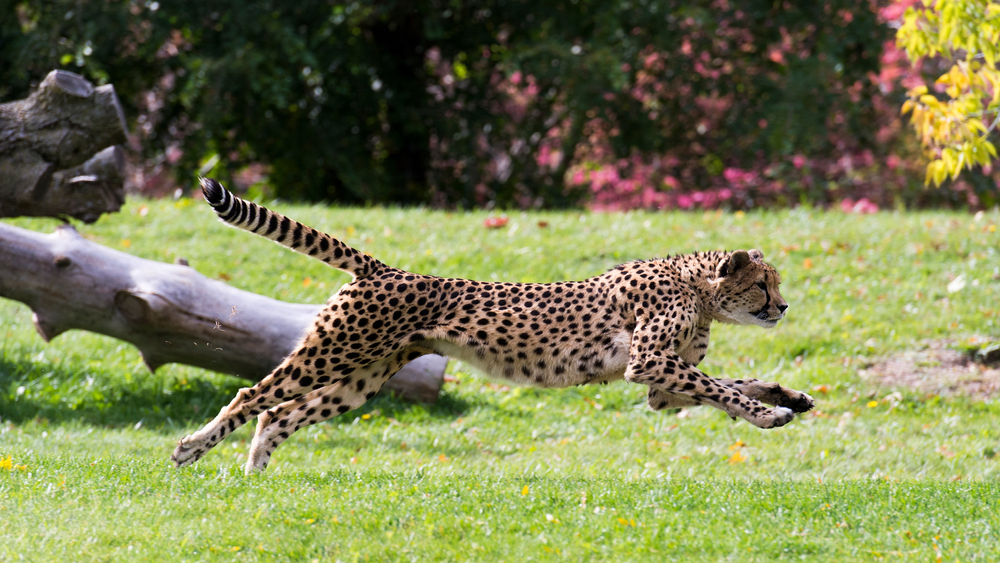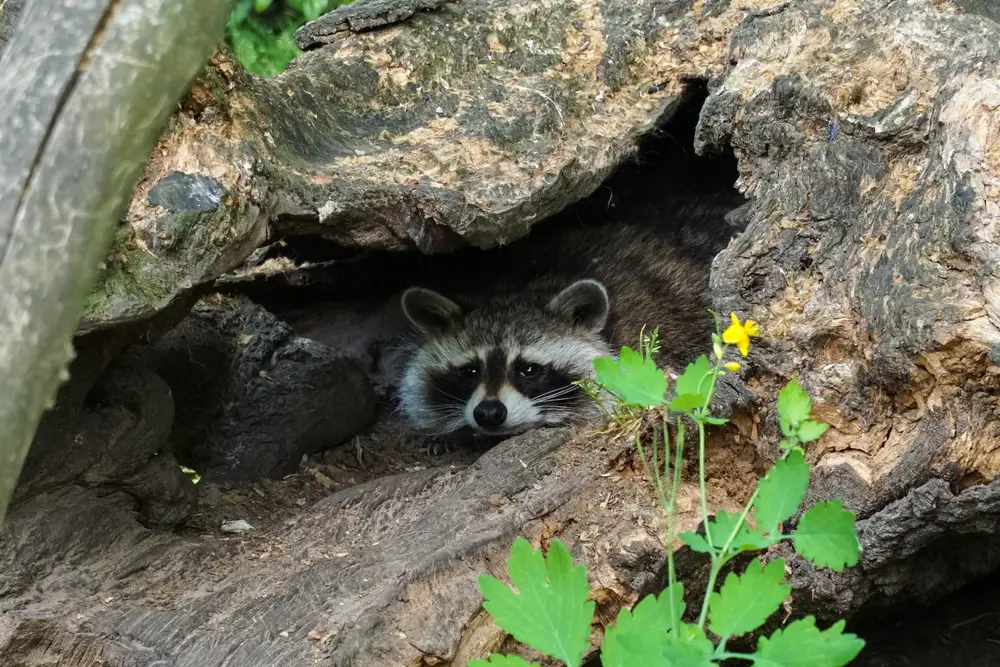When you think about surviving in the wild, images of rugged landscapes and fierce animals might come to mind. But if you take a closer look, nature is packed with strategies that creatures use to thrive, not just survive. These tactics aren’t just for the wilderness—they can help us navigate the ups and downs of daily life, especially when it comes to mental health. Let’s explore some survival tactics from the wild that could boost your mental well-being.
1. Adaptability Is Key

In the wild, adaptability is crucial for survival. Animals that can adjust to changes in their environment are more likely to thrive. Similarly, being open to change in your life can help you navigate stress and uncertainty. Instead of resisting, try to embrace new situations as opportunities for growth. According to a study by Dr. Carol Dweck at Stanford University, having a growth mindset can significantly improve your mental resilience.
Think about it: when a river changes course, be like the fish that swim with the flow rather than against it. This doesn’t mean you should agree with everything life throws at you, but finding ways to adjust can ease stress. Try little changes first to build your adaptability. Experiment with a new hobby or change your routine slightly. Over time, these small shifts can make you more resilient to life’s bigger challenges.
2. Find Your Tribe

In nature, many animals rely on their group for safety and support. Whether it’s a pack of wolves or a flock of birds, there’s strength—and comfort—in numbers. Similarly, having a strong support network can boost your mental health. Surround yourself with people who uplift and understand you. They can offer different perspectives, emotional support, and, sometimes, just a listening ear.
Building your personal tribe doesn’t happen overnight; it takes effort and time. Start by reaching out to friends or family you haven’t connected with in a while. Join clubs or groups that align with your interests to meet like-minded people. Virtual communities can also be a great source of support. Remember, it’s about quality, not quantity. A few close connections can be more valuable than a large circle of acquaintances.
3. Prioritize Rest And Recovery

Even the most resilient animals know when it’s time to rest. Lions spend up to 20 hours a day sleeping to conserve energy for hunting. Similarly, allowing yourself time to rest is crucial for maintaining mental health. Chronic stress and lack of sleep can lead to burnout and exacerbate mental health issues. Dr. Matthew Walker, a sleep expert, highlights that sleep is essential for emotional regulation and memory consolidation.
It’s tempting to keep pushing through exhaustion, but make rest a non-negotiable part of your routine. Establish a regular sleep schedule by going to bed and waking up at the same time each day. Create a calming bedtime routine to signal your body that it’s time to wind down. If sleep is elusive, consider relaxation techniques like meditation or deep breathing exercises. Remember, rest is not a luxury; it’s a necessity.
4. Use All Your Senses

Nature’s creatures rely on their senses to understand and respond to their environment. Birds listen for predators, and deer use their keen sense of smell to detect danger. Engaging your senses can also be grounding and therapeutic for you. It brings your attention to the present moment and reduces anxiety. Try focusing on what you can see, hear, smell, and feel around you to anchor yourself in the here and now.
Next time you’re feeling overwhelmed, pause and take a deep breath. Notice the colors in your surroundings or the sounds you might usually ignore. Perhaps you prefer the scent of fresh coffee or the texture of a cozy blanket. By consciously engaging your senses, you can create a mental pause button and give yourself a break from overthinking. It’s a simple way to reconnect with the world around you and bring your mind back to the present.
5. Stay Consistent, Yet Flexible

In the wild, routines can help animals predict changes and prepare for them. Migration patterns, mating seasons, and feeding times often follow a natural rhythm. Like animals, you can benefit from a consistent routine that provides stability. However, it’s also essential to remain flexible to adapt to life’s unpredictability. A study by psychologist Dr. Jordan Peterson suggests that having a routine can enhance your sense of purpose and reduce stress.
Create routines that serve your mental health by starting with small daily habits. Stick to a morning routine that sets a positive tone for your day. Plan your meals or exercise at the same time each day to create a sense of normalcy. But remember, it’s equally crucial to allow room for spontaneity. Striking a balance between routine and flexibility helps you stay grounded while being open to new experiences.
6. Practice Mindful Observation

Animals are excellent observers; they notice subtle changes in their environment that could mean the difference between life and death. By practicing mindful observation, you can learn a lot about yourself and your surroundings. This means paying attention to the details without judgment. Being mindful helps you become more aware of your thoughts and emotions, providing clarity and insight.
Start by taking a few moments each day to observe your surroundings quietly. Notice the details in your environment, like how the leaves move with the breeze or the patterns of light and shadow. Observe your thoughts and feelings, too, without trying to change them. This practice can help reduce stress and increase your appreciation for the little things. Over time, mindful observation can cultivate a sense of peace and grounding in your daily life.
7. Embrace Solitude

Many animals require solitude for resting, hunting, or recharging. Similarly, spending time alone can be valuable for introspection and self-discovery. Solitude allows you to connect deeply with your thoughts and emotions, fostering personal growth. According to Dr. Sherrie Bourg Carter, solitude can enhance creativity and improve concentration.
Carve out intentional time for yourself, even if it’s just a few minutes a day. Use this time to reflect, journal, or simply enjoy a peaceful activity. Solitude doesn’t have to mean isolation; it’s a chance to focus inward and recharge. Find a quiet spot in your home or take a solo walk in nature. Embrace these moments as opportunities to learn more about yourself and gain clarity on your life’s path.
8. Be Resourceful

Animals in the wild are masters of resourcefulness, using whatever’s available to meet their needs. Birds build nests from twigs, and otters use stones to crack open shellfish. When you approach challenges with a resourceful mindset, you can find creative solutions. This skill is particularly helpful when dealing with stress or unexpected changes. It encourages you to think outside the box and make the most of what you have.
When confronted with a problem, take a step back and look at it from different angles. Consider the resources you already have, including your skills, knowledge, and support network. Experiment with new approaches and be open to unconventional solutions. Resourcefulness is about adaptability and creativity, helping you navigate life’s hurdles. Remember, you often have more tools at your disposal than you might initially realize.
9. Communicate Effectively

Animals rely on different forms of communication to warn each other of danger, express needs, or strengthen social bonds. Clear and effective communication is also crucial for maintaining healthy relationships and mental health. Expressing your thoughts and feelings openly can prevent misunderstandings and build trust. It also allows you to advocate for your needs and boundaries.
Practice active listening when engaging with others, giving them your full attention. Express yourself honestly and respectfully, using “I” statements to communicate your feelings. Being clear about your needs and expectations can prevent unnecessary stress and conflict. Remember that communication is a two-way street, requiring both speaking and listening. By improving your communication skills, you can strengthen your relationships and enhance your emotional well-being.
10. Stay Present

In the animal kingdom, staying present is a matter of survival. A gazelle grazing in the savannah is fully aware of its surroundings to respond quickly to threats. Living in the present moment can also help you manage stress and anxiety. Being present allows you to experience life more fully and appreciate the here and now. It shifts your focus away from past regrets or future worries.
Practice mindfulness by focusing on your breath or engaging fully in your current activity. Allow yourself to experience each moment without judgment or distraction. When you notice your mind wandering, gently bring your attention back to the present. Cultivating this habit can help reduce anxiety and improve your overall well-being. Remember, life unfolds one moment at a time, and being present allows you to savor each one.
11. Trust Your Instincts

Animals have finely tuned instincts that guide their survival decisions. While humans rely on logic and reason, listening to your instincts can be equally valuable. Sometimes, your gut feeling might offer insights that logic misses. Trusting your instincts can enhance decision-making and boost confidence in uncertain situations.
Next time you face a decision, take a moment to check in with your gut feeling. Ask yourself what your instincts are telling you and consider them alongside rational analysis. Trusting your instincts doesn’t mean ignoring logic; it’s about balancing intuition with reason. Reflect on past situations where your instincts served you well to build confidence in this inner resource. Over time, you’ll learn to trust yourself more and navigate challenges with greater ease.
12. Stay Physically Active

Many animals spend significant time moving or engaging in physical activities to survive. Physical activity is not only essential for physical health but also critical for mental well-being. Exercise releases endorphins, natural mood elevators, and helps reduce stress and anxiety. Incorporating regular physical activity can improve your overall sense of well-being and mental clarity.
Find activities that you enjoy, whether it’s walking, dancing, or swimming. Aim for at least 30 minutes of physical activity most days of the week. Exercise can also be a social activity if you join classes or groups, adding an extra layer of support. Remember, the goal is not perfection but consistency. Over time, regular physical activity can become a healthy and rewarding habit.
13. Learn From Mistakes

In nature, mistakes can be harsh learning experiences. Animals learn to avoid danger by observing and adapting to their environment. Similarly, viewing mistakes as learning opportunities can enhance your mental resilience. Mistakes can offer valuable insights into what didn’t work and why. Embracing them as part of your growth journey can reduce fear and anxiety over failure.
Reflect on past mistakes to understand the lessons they offer. Consider what you can do differently next time and apply these insights to future challenges. Avoid dwelling on the negatives; instead, focus on the knowledge gained. Remember, everyone makes mistakes—it’s how you respond that defines your growth. Learning from mistakes empowers you to make better choices and builds confidence in your abilities.
14. Seek Shelter And Safety

In the wild, finding a safe space is vital for protection and rest. Animals build nests, burrows, or dens to shelter themselves from predators and harsh weather. Creating a safe space for yourself, both physically and emotionally, is crucial for mental health. Your environment can significantly impact your mood and stress levels. A supportive and safe space allows you to recharge and feel secure.
Make your home or workspace a sanctuary by adding elements that bring comfort and peace. Consider lighting, colors, and personal items that make you feel good. Create emotional safety by setting boundaries with others and prioritizing your needs. Your safe space can be a retreat where you can relax and recharge. Remember, having a haven is essential for maintaining mental and emotional well-being.
15. Practice Gratitude

Animals in the wild seem to live with an inherent appreciation for the resources they have. Practicing gratitude can shift your focus from what’s lacking to what’s plentiful in your life. This shift in perspective can improve your mental health by fostering contentment and reducing stress. Regular gratitude practice can enhance your overall outlook and resilience.
Start by listing a few things you’re grateful for each day. They can be as simple as a warm cup of tea, a supportive friend, or a sunny day. Reflect on these blessings to develop a greater appreciation for the positives in your life. Gratitude journals or sharing your gratitude with others can amplify this practice. Over time, cultivating gratitude can become a powerful antidote to negativity and stress.
